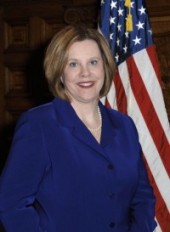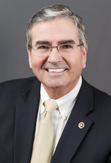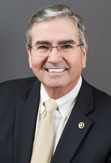The House Insurance Committee on Monday passed revamped legislation to reduce “surprise billing,’’ in which patients using hospitals in their insurance network may still get unexpected bills from doctors who are not in the network.
Consumers who have procedures or visit ERs at hospitals in their networks often get separate bills for hundreds or even thousands of dollars from non-network doctors who were involved. These bills can come from ER doctors, anesthesiologists and radiologists, among others. Several states recently have passed legislation to address the problem.

The new version of Senate Bill 8 is vastly different from the original proposal that passed the state Senate unanimously.
The previous version relied on a percentage of charges from a national database as the tool to resolve billing situations disputed by patients. The substitute legislation sets up a new formula for out-of-network reimbursement for emergency services, but does not have a similar setup for scheduled patient care by other hospital-based physicians, such as anesthesiologists.

It also would require hospitals to inform patients set for surgery or another procedure that a doctor involved is not a network provider.
Both Sen. Renee Unterman, the bill’s sponsor, and Rep. Richard Smith, chairman of the House Insurance Committee, called the bill ‘’a first step’’ toward solving the billing problem. Smith said that about one in five hospital ER patients nationally receive bills from non-network doctors.
Unterman, a Buford Republican who’s also a nurse, said many teachers needing emergency care in her county, Gwinnett, find that ER doctors at Gwinnett Medical Center hospitals are out of their insurance network.
The revamped legislation drew praise from the health insurance industry, with the Georgia Association of Health Plans saying the proposal mirrors a federal formula for out-of-network ER reimbursement.
But physician groups favored the previous Senate Bill 8, which called for the medical provider to be paid at a rate that’s 80 percent of benchmark charges for a particular procedure in the ZIP code where the service was delivered. And on Monday, doctors’ organizations said they oppose the new version, calling it “one-sided.”
The president of the Medical Association of Georgia (MAG), Dr. Steven M. Walsh, said his organization “believes that this legislation would create a system that lacks transparency and would undermine the state’s health care system, especially in rural areas, as physicians would be paid at inadequate and unsustainable levels. MAG also believes that S.B. 8 is unconstitutional. Finally, it is worth noting that health insurers have refused to provide MAG with the medical specialty code information it needs to evaluate S.B. 8’s billing methodology.”
During the hearing, Unterman said “the doctors are in panic mode’’ over the revised approach.

Smith, a Republican from Columbus, said he has told MAG that “you’ve got some rogue doctors out there’’ responsible for much of the surprise bill problem. “It’s that small group out there that’s generating this conversation.”
Rep. Heath Clark (R-Warner Robins ) told the panel that he has received a surprise bill himself. But he described himself as “torn’’ over the legislation, and said doctors in his district are opposed to the new approach.
“My fear with this, we’re going to regulate reimbursement,’’ which could reduce access to care, especially in rural areas, Clark said.
Rep. Darlene Taylor, a Thomasville Republican, said health care is not a free market. “Doing nothing [on surprise billing] helps no one,” she said.
Georgia Watch, a consumer advocacy organization, said Monday that it’s pleased with the panel’s passage of the bill, citing the ban on balance billing in emergency situations.
“This provision is key to ensuring that consumers do not get surprise bills in emergencies,’’ said Beth Stephens of Georgia Watch, which has said that issues with medical bills were the No. 1 reason why consumers called the organization in 2016.

If Senate Bill 8 passes the House, the two chambers must settle the differences between the original and revised versions in a conference committee.
A House bill that was sponsored by Smith would have required any physician credentialed at a particular Georgia hospital to be part of that facility’s insurance networks.
That way, Smith told GHN recently, the insurer and provider would have to negotiate with each other ‘’in good faith’’ to resolve the reimbursement question. The patient, he said, would be kept out of that battle.
But House Bill 71 failed to clear that chamber before the Crossover Day deadline, effectively eliminating its chances of passing the General Assembly this year.
After Monday’s vote on the new Senate bill, Smith said its ER billing provisions address the fact that a patient in a medical emergency can’t stop and check on providers’ network status. “It’s the one area [patients] have no control over,’’ he told GHN.

